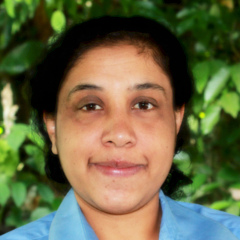ABC of Civil Services | Common mistakes candidates make in prelims

Mail This Article
The preliminary examination is round the corner and candidates are busy with the last rounds of revision and tests. The first timers are eagerly waiting for the big day and those who are going to make their last attempt are determined to commit no errors. Amid the added tension of going to an examination centre during the pandemic, the future administrators of the country will take their first step towards their dream career this week.
I have seen certain candidates who never manage to clear preliminary examination despite having very good knowledge. Some of them have incredible writing skills too which could have been a real asset in the main examination. But the inability to cross the first hurdle prevents them from using these skills. Let me just point out certain common mistakes candidates make in the preliminary examination.
If one analyses the questions asked in the preliminary examination closely, one can observe that a sound knowledge in the basic areas like history, geography, economics and polity are essential. Most of the questions are based on the conceptual understanding of the areas mentioned above. So, while preparing one has to really understand the subject and should be in a position to apply the same even when the questions are asked from different angles. People who manage to clear preliminary every time are the ones who have excellent basic knowledge. But many people fail to appreciate this simple factor.
Wrong notion
They are the ones who devote themselves to “current affairs” and believe that most of the questions come from this segment. But the truth is, apart from new government schemes, discoveries related to science as well as environment and places in news (all of these constitute maximum 10-15 questions) there are not many questions which can be called current affairs in the current preliminary examination. The Union public Service Commission (UPSC) often asks basic questions related to current events. For example, if a general election is happening in a particular year, a question can be asked on the Election Commission. So, ultimately it goes back to the basics and people who concentrate only on the current affairs, will pay a heavy price.
Nothing like practice
People who only memorise facts but fail to take enough mock tests will never make it. The process of eliminating the wrong answers needs a fair amount of practice. And completing a hundred questions in two hours is never easy. One has to practice at least for a period of six months to develop the necessary speed and accuracy to get through.
There are people who attempt all the hundred questions and those who mark less than fifty questions. Both these can be risky in an examination with negative marks. In the preliminary examination, the question paper follows a pattern of difficulty level. Around 35-40 questions are easy, 40-45 questions will have confusing choices and 10-15 questions are tough. One has to get all those easy questions right and should leave those tough questions. Among those with confusing choices, one should manage to get at least half of them right to clear the preliminary examination. This is where one’s knowledge and practice come useful. The sound judgement will help in avoiding unnecessary errors which can be developed only with due training.
I have mentioned about the difficulty level in the actual examination. But many coaching institutes come up with very difficult questions for preliminary mock tests which affect the confidence levels of the candidates. Another problem with some institutes is that they try to complicate things by giving peculiar interpretations to facts. They believe that the UPSC is never going to ask direct questions and therefore urge candidates to read between the lines. So, the answer keys of such institutes always have confusing explanations. This creates panic among many candidates.
Revising the previous question papers of the UPSC is most helpful. So, one should do that and stick to reliable sources for mock tests.
The actual difficulty in preliminary examination is that only around three per cent of the people will qualify for the next level. One should be careful enough not to make silly mistakes. At the same time, it is a qualifying examination and one needs to score just enough to cross the bar. So, keep in mind these facts while appearing for the preliminary examination.
(Remya Roshni, ex-IPS, is a civil service trainer and author of "How to Ace Civil Service Interviews")


